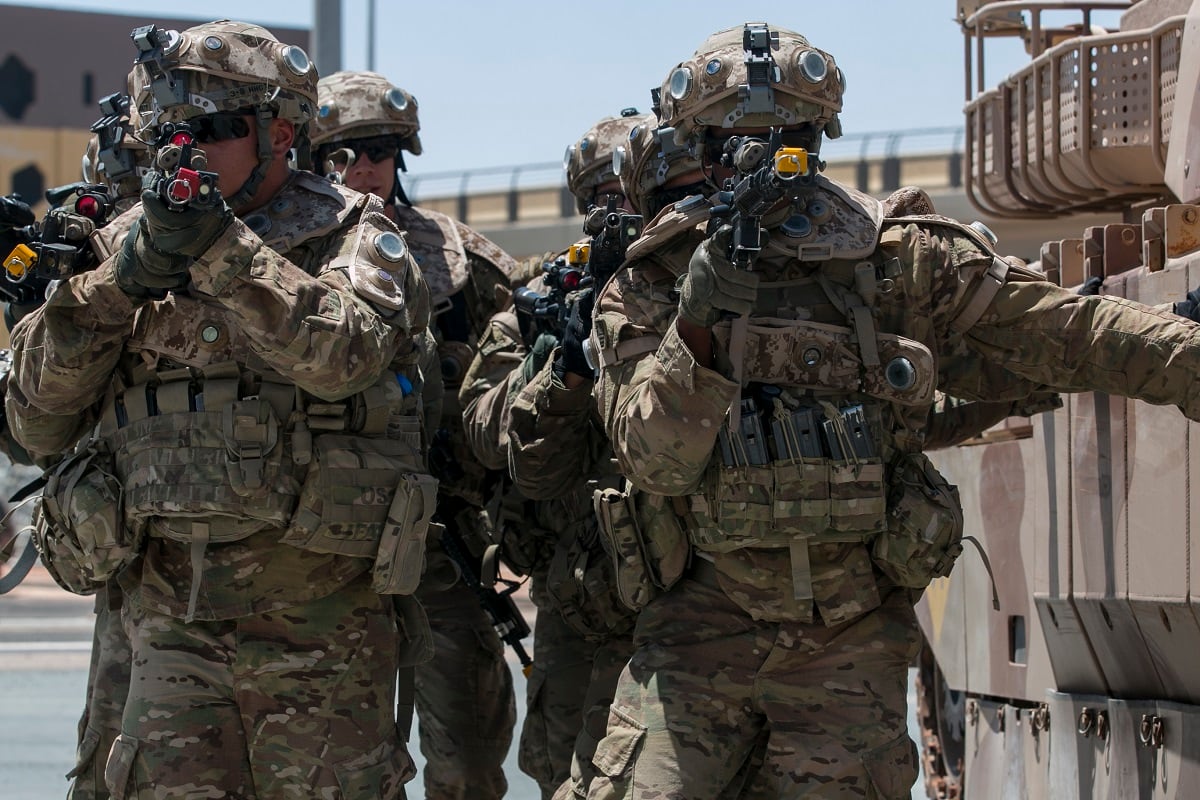Two decades ago, the Marine Corps was in the midst of reviving and revamping how it would fight in urban terrain.
The service hadn’t faced sustained urban fighting since the Vietnam War’s Battle of Hue City. It drew notes from the recent Battle of Mogadishu and recent Chechnyan-Russian fighting as it experimented.
What followed was first Urban Warrior program, which led to a more focused follow-on experiment dubbed Project Metropolis.
For nearly three years top thinkers in the Marine Corps Warfighting Lab and elsewhere looked at how to update decades-old tactics, techniques, procedures, organization and equipment for the modern battlefield.
RELATED

That effort spawned early drone, microrobot and communications experiments, testing of rigid foams to seal rooms in house clearing and nonlethal options for bypassing snipers.
It also gave next generation Marines new ways to fight through training changes to attacks, defense, patrolling, sustainability, marksmanship, squad and platoon-level combined arms and intra-squad radio abilities in the urban environment.
This year will see the launch of the Project Metropolis II, with a monthlong experiment in August by a Marine rifle company at the U.S. Army National Guard’s Muscatatuck Urban Training Center in Indiana.
The yet-to-be selected unit will operate in the new 12-Marine rifle squad configuration, including a squad systems operator that will help bring cyber, electronic warfare and unmanned vehicles to the fingertips of the squad.
This was spurred, in part, by the Marine Corps Operating Concept, released in 2016, which identified dense urban terrains as a problem set for future warfare.
Maj. Justin Sumner, dense urban lead for MCWL, told Marine Corps Times that training for the event will begin at the individual Marine level and work its way up to company-level capabilities.
“We have to push combined arms down to the smallest elements possible,” Sumner said. “And expand things that the small unit can employ.”
It’s an example of the overall push to take what were previously capabilities at higher echelons such as battalion or above and put them in the hands of smaller tactical units that will be the ones in disparate, isolated, challenging urban terrains that the Corps and Army expect to find themselves fighting in the not-too-distant future.
The August experiment is just the first live-action example of what is planned for a five-year Metropolis II campaign, according to a Marine memo outlining the program.
The first year’s focus areas are sensing/locating the threat, speed of decision/speed of action and lethality.
To explore those areas, Marines will work within five objectives:
- Improving the situational awareness of small units operating in a Dense Urban Environment.
- Improve of platoon and company level headquarters ability to quickly and accurately process information, issue direction and grant authorization.
- Expand the scope and depth of lethal engagement options available to the small units operating in a DUE.
- Improve the ability of small units to operate in and dominate subterranean environments.
- Examine and assess developing technologies to improve the ability of landing forces to operate in a DUE.
The efforts are not starting from zero, decades after the first Metropolis project.
In recent years the Corps has held specific tech evaluations of gear and tactics for amphib landings in urban areas, held their own focused experiments as part of a Defense Advanced Research Projects Agency program known as Squad X and flowed small unit weapons, tactics and organization changes from its ongoing Sea Dragon experiments, the first of which spent more than a year evaluating the infantry battalion.
Sumner emphasized that while technology and gear are part of their efforts the underlying goal is to learn how to better train and educate marines to compete and thrive in the challenging urban environment.
Todd South has written about crime, courts, government and the military for multiple publications since 2004 and was named a 2014 Pulitzer finalist for a co-written project on witness intimidation. Todd is a Marine veteran of the Iraq War.




